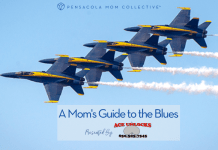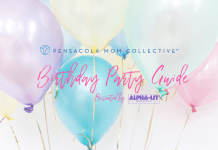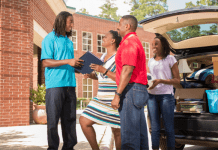“Mom, I’m sorry that we were hit and that our car has some damage, but I learned a lot from you and dad talking to us about it afterward,” my teenager told me.
My vehicle was sideswiped a few blocks from my home during Thanksgiving break. I won’t go into the details. They are not necessary. My children were in the car with me and unharmed. Everyone was OK (and is OK), which is vital.
We were lucky.
When it was over, we all sat down as a family to talk about the incident. Since I had been driving, I replayed the incident from my perspective. I shared how I checked on the other driver to see if the person was OK and not injured. I called my husband to tell him what had occurred and called 911 to report the incident.
My children shared their perspectives as well, stating what they saw. One child was sitting next to me, stating what she had witnessed. The other was in the backseat, looking forward, and did not see anything.
I shared the other driver’s perspective as I heard her words reported to the policeman, and her account was different than mine.
I shared with my kids how perspectives differ–how viewpoints can contrast based on what you experience and believe happened.
My husband joined me at the scene. He coached me on stating facts and not sharing opinions or too much detail with the officer. At his advice, I gave straight points on what happened. I shared my encounter with the police officer. My husband’s tips helped me better explain my side. I noticed the other driver was wordier and more emotional in their account. Somehow, I remained calm until it was over, and I was safely home. The other driver was deemed at fault and went home with a ticket.
Later, my husband and I told our kids about other incidents we have witnessed or have personally been in while driving. We shared close calls and things we have done wrong and right in multiple cases.
My teenager is about to start driving, and she listened intently. My 10-year-old told me the following day how she was glad we discussed it and included her in the conversation.
I didn’t realize that having these simple talks about safe driving and what to do if you get into an accident would be so valuable.
Our family discussed what happened and what I could have done better.
I share this story to say that accidents happen and will continue to occur. I’ve seen an increase in car accidents and traffic jams in our area, especially now that we’re in the holidays. So I made sure to talk to my kids about the whole incident.
They were with me and deserved to understand more. They can learn a lot from the story.
My teenager said to me: “Thanks for sharing with me what happened, what you and the other driver said and did differently. I think it will help me as I start driving. And now I know what to do if I get into an accident.”
My tween said, “I’m glad you talked to me about the accident even though I’m years away from driving.”
Things we told our children during our discussion that we hope will help them (and are good reminders for us all) included:
- Don’t be in a hurry. Allow more time to get where you need to go, especially around the holidays. If you’re late somewhere, just apologize. It’s better to arrive late and safely!
- Wear your seatbelt. It’s the law, and it could save your life.
- Look in all directions multiple times before turning, pulling out, and driving straight ahead. You may miss a car, or they may drive up quickly and surprise you.
- Allow enough room between you and the other drivers for sudden stops.
- Put your phone away and don’t have it in your viewpoint to distract you while driving. If you need to talk, pull over so you can park and then speak safely.
- Don’t play music too loudly. It could distract you from listening to traffic concerns.
- If you get into an accident, first establish that you and the people in your car are OK. Then check on the other driver in the other vehicle. Ask all people involved in the incident if they could be injured and may need medical attention. If they do, call 911 immediately or ask someone nearby to call the police.
- Take photos of any damage to your vehicle and the other vehicle(s) involved. Also, take a photo of the other vehicle’s license plate.
- Always call 911 and report the incident, even a minor one. This is to protect you and have a report for insurance.
Be safe out there this holiday season and all year long!
Share your close calls and encounters with your children, our future drivers. It helps them more than you realize, and they’ll be grateful for the valuable tips. My children were grateful to be in on the conversation about safe driving.
Do you have other tips to share? Leave them in the comments.













